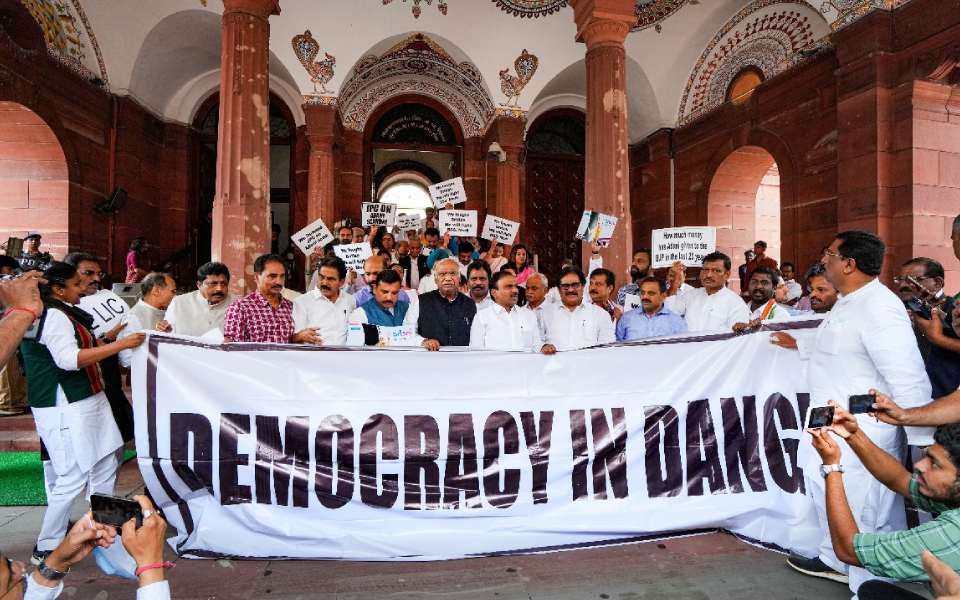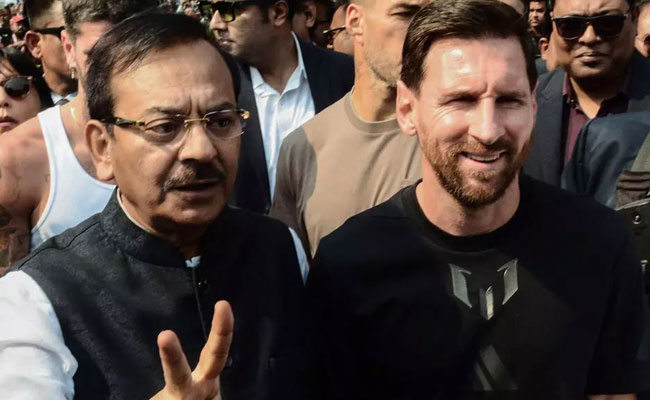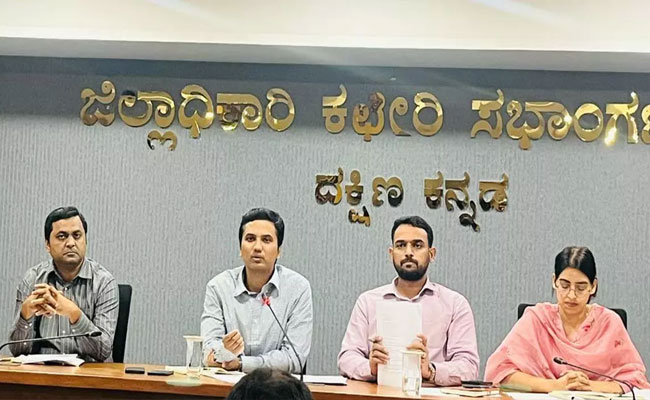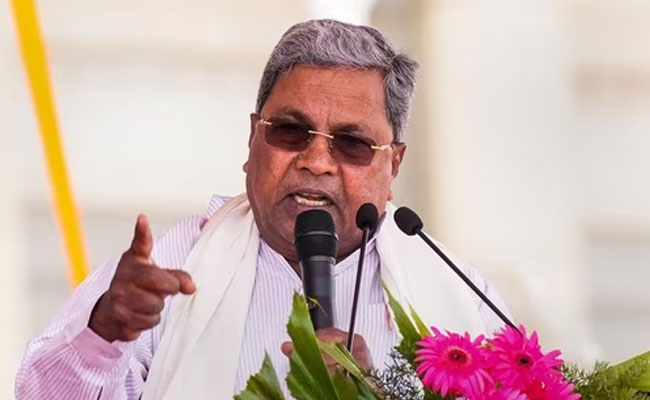In a significant revelation, the V-Dem (Varieties of Democracy) report has placed India in the bottom 40-50% of 179 countries assessed, citing a sharp decline in democratic values since 2013. The report positions India between Niger (higher ranking) and Ivory Coast (lower ranking).
Alarming trends suggest that India has become one of the top ten autocratisers globally, resulting in a democratic regression to levels last observed in 1975. Notably, India now holds the disconcerting distinction of hosting nearly half of the population residing in countries undergoing autocratisation.
Democracy Deterioration: A Global Phenomenon
The V-Dem report underscores a global surge in autocratisation, with 42 countries, encompassing 35% of the world's population, experiencing this trend. India, home to 18% of the global population, contributes significantly to the burgeoning autocratisation phenomenon. The report points out that India, which was formerly recognized as a democracy, transitioned to an "electoral autocracy" in 2018 and continues in that state as of the end of 2023.
Key Findings from the V-Dem Report:
1. Autocratisation Timeline:
The process of autocratisation in India gained momentum around 2008 and has followed the incremental patterns typical of the "third wave." The report suggests a gradual erosion of freedom of expression, media independence, and social media crackdowns, underscoring concerns over democratic backsliding.
2. Global Comparison:
India's autocratisation trajectory places it among the worst-performing nations in recent times. The report highlights the South and Central Asia region as the second most autocratic globally, with over 90% of the population residing in electoral autocracies.
3. Component Indices Analysis:
Liberal Democracy Index (LDI):** India ranks 104th, exhibiting a score decline, reflecting both liberal and electoral aspects of democracy. Pakistan, for context, stands at 119th.
- Electoral Democracy Index (EDI): India holds the 110th position, indicating challenges in holding fair elections and freedom of expression. The Clean Elections Index shows substantial deterioration, impacting 18 countries, including India.
- Liberal Component Index: Ranking 92nd, this index evaluates the protection of individual and minority rights. India demonstrates a decline in scores.
- Egalitarian Component Index: India's lowest ranking (137th) is in this index, measuring social groups' equal participation in politics.
4. Regional Context:
South and Central Asia emerge as the second most autocratic region globally, with 93% of the population residing in electoral autocracies. Bhutan stands out as the sole liberal democracy, emphasizing the regional democratic deficit.
Concerns Raised by V-Dem:
The report underscores India's diminishing environment for religious freedoms, citing instances of suppressing freedom of religion rights. It highlights the government's use of sedition and defamation laws to silence critics, indicating an erosion of constitutional commitments.
Digital Repression and Media Control:
The V-Dem report criticizes India's handling of dissent and digital repression, citing instances of internet shutdowns. India has been labeled the "Internet Shutdown Capital" for five consecutive years, accounting for 58% of global shutdowns last year. Social media control is flagged, with India, along with other countries, successfully censoring political content on platforms.
Global Impact:
India's demographic weight contributes significantly to the global autocratisation narrative, with 44% of the world's population residing in electoral autocracies. The report notes that developments in India drive many dramatic global trends, reflecting a 48% increase in the population living under autocracies.
“There is a rise by 48% of those living under autocracies. Also, “44% of the world’s population, or 3.5 billion people – reside in electoral autocracies, which include populous countries such as India, Pakistan, Bangladesh, Russia, The Philippines, and Türkiye.”
The V-Dem or Varieties of Democracy project, has been “measuring democracy” via “a multidimensional and disaggregated dataset that reflects the complexity of the concept of democracy as a system of rule that goes beyond the simple presence of elections.
The V-Dem project distinguishes between five high-level principles of democracy: electoral, liberal, participatory, deliberative, and egalitarian, and collects data to measure these principles.” The V-Dem institute is at the Department of Political Science at the University of Gothenburg in Sweden.
Let the Truth be known. If you read VB and like VB, please be a VB Supporter and Help us deliver the Truth to one and all.
Belagavi (Karnataka) (PTI): The Karnataka Excise Department has conducted a statewide crackdown on illegal liquor trade over the last two years, resulting in arrests and seizures of alcohol, Karnataka Excise Minister R B Timmapur said on Tuesday.
As many as 1,09,017 people were arrested, and seizures included 13.66 lakh litres of liquor and 27.19 lakh litres of beer, he said in a written reply to a starred question by Harihar BJP MLA B P Harish in the Karnataka Assembly.
The Minister said the enforcement drive covered the financial year 2023–24, 2024–25 up to June, and 2025–26 from July to October, targeting unauthorised liquor manufacture, storage, sale and transportation across the State.
"During this period, statewide enforcement drives resulted in a total of 1,84,570 raids against illegal liquor sales,” Timmapur said.
ALSO READ: BJP accuses Karnataka govt of 'failing' to prevent noise pollution caused by 'azaan'
He noted that 9,179 non-bailable cases and 91,968 bailable and compoundable cases under Section 15(A) of the Karnataka Excise Act, 1965, were registered during the same period.
According to him, there have been no reports indicating that students have become addicted to alcohol due to illegal liquor sales.
The sale of alcohol to minors is strictly prohibited under the Karnataka Excise Act, 1965, and the department has issued periodic instructions to initiate legal action against violators, with strict enforcement and investigation measures in place, the Minister said.
Excise officials are carrying out regular road and night patrols, collecting intelligence, monitoring habitual offenders and conducting raids to identify illicit distillation units, unauthorised liquor outlets and spurious liquor manufacturing centres, he said, adding the department is also enforcing the law to prevent the production, storage, sale and transport of spurious, non-duty-paid and unauthorised liquor.
Regular patrols are being conducted on national and state highways, with suspicious vehicles being subjected to checks.
At the district level, standing committee meetings are held under the chairmanship of Deputy Commissioners, and joint operations are carried out with the police and forest departments to curb excise-related offences.
The department is also conducting awareness programmes through Gram Sabhas and in schools and colleges to educate the public and students about the physical, mental and social health hazards associated with alcohol addiction and substance abuse, Timmapur added.





